|
This month, Tokyo-based Australian interior designer Katie O'Brien talks about life, design and her personal mission of living life as an aspiring zero-waster. 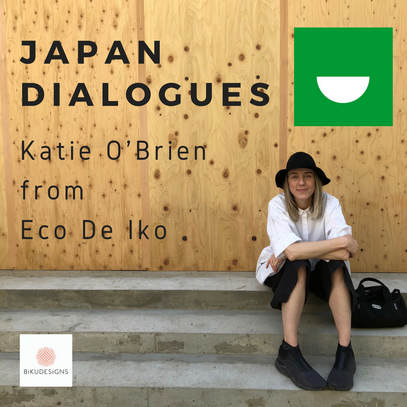 Where are you originally from? I was born in Tweed Heads, Australia - half way between the Gold Coast and Byron Bay. During winter I lived on netball courts with weekends spent travelling in buses up and down the east coast of Australia, from Cairns to Sydney playing netball in squads and representative teams. Whilst in summer I lived on the beach at Greenmount Surf life-saving club, competing in Nippers as a junior, cadets as a senior then doing weekend Surf Life Saver patrols. All I wanted to do was be outside, run around and do sport - that was my life! 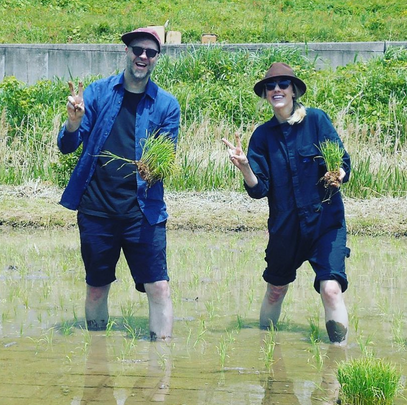 When did you last live in Australia? I last lived in Melbourne, Australia in January of 2016. My Husband Ash and I had been based there for three years at that stage. Ash is originally from Melbourne but we met in Brisbane where we both lived and worked as Interior Designers at the time (I am a Commercial workplace / office Designer, he was an Educational and Institutional Designer). I studied Design and worked in Architecture firms for a total of 10 years in Brisbane and prior to that lived in Sydney for 2 years where I studied Design straight out of school. 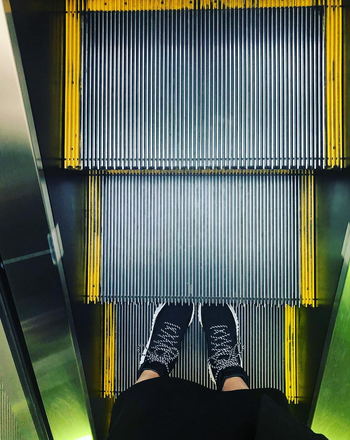 Tell us a bit about what brought you to Japan and how long you have been here? I had travelled to Tokyo twice as a tourist and on the second trip with Ash I proposed to him on the rooftop of our favourite design hotel (Hotel Claska in Meguro) with Mt Fuji sparkling in the distance - so Tokyo is a favourite city of ours! We always wanted to live here but without being fluent in the language we never thought it would happen. So we targeted international Design and Architecture firms based in Tokyo, assuming they would be more willing to accept a foreigner. After stalking the website of Gensler and Associates for only 2 months (the world’s largest design firm with over 5,500 employees and 56 studios globally) a job came up and I applied and was accepted! We then had to finish a renovation (of which were part way through) get married (which we had been planning for a year) go on a post wedding holiday to Europe (for 5 weeks), return home, pack up as much as possible and move - all within 3 months! I arrived in Tokyo on February 13th 2016 and Ash came 2 months later. 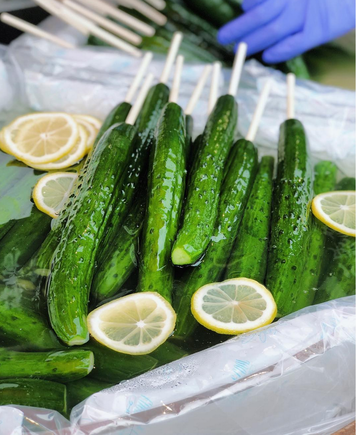 Did you always have an interest in Japan? Was there a moment you remember that inspired you to try life in Japan? Coming from an Architecture and Design background, Japan holds a special place for nerds like us! Japanese design principles are placed on a pedestal during our formal education and learning about the masters such as Tadao Ando and Kengo Kuma at university is what started my obsession. Japan is a myriad of contradictions at her core; old and new, futuristic and traditional, loud and crazy yet wonderfully serene. This juxtaposition is what draws Designers and Architects in as we try and make sense of the cultural landscape, the physical fabric of the environment and the lexicon of the city. 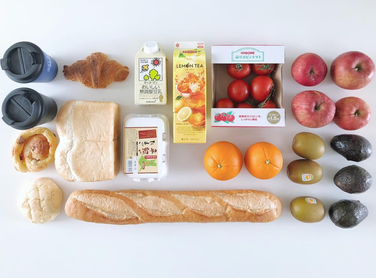 3 things you love about Japan. 3 things you can really live without. Love: Efficiency, Selflessness, Midnight blue skies Not so much: Beige overcoats, Japanese Patriarchy, Business bureaucracy 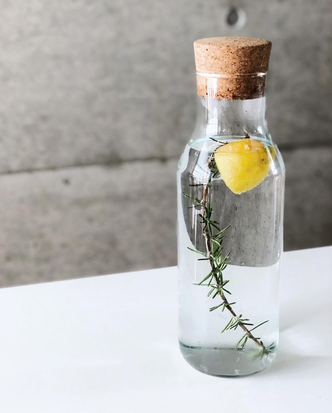 Tell us a little about your personal mission. I was always BUSY in Australia, lecturing, volunteering, renovating, playing sport, going to design events, working stupidly long hours, trying to being social - I didn't know how to say 'No' to people. As ludicrous as it sounds, I had to move to the busiest city in the world to learn how to relax a little; a Japanese paradox in every way. So these days I have learned how to say no. To take time for myself, my body, my mind and respect mother earth, all of which have recently lead to a pursuit of a minimalist, Zero Waste lifestyle. Q & A Corner From louisadouglas
I’m finding it so hard to reduce waste here in Tokyo. What reaction do you get when requesting your coffee be made in your own reusable cup? I feel like they take such pride in their presentation and packaging of products that it might be a bit awkward? Coupled with the fact I can’t speak Japanese to make the request clearly.... can you also tell me how to ask to use your own cup in Japanese please? Saying 'No' to excessive packaging is all about a combination of confidence and politeness. I have my regular cafes I get coffee from so the staff know I use my own cup. But at the start it was hard, so I asked my Japanese friends to write down translations for me. Recently THE TOKYO CHAPTER did a great blog piece on 'Zero Waste lifestyle' in Japan and featured some simple Zero Waste phrases you can use in Japanese. Link here From ecohachiliving You have such great tips to reduce waste. I was wondering if you have tried to convince friends and family to adopt a zero-waste lifestyle? Have you been successful? My friends and family are well aware of my Zero Waste aspirations and it has taken time for them to adapt to this new lifestyle too. For example, no more omiyage for Japanese coworkers is a big thing given how culturally ingrained it is here. But I use this as an opportunity to educate them about Zero Waste decisions. For close friends and family I purchase them Zero waste presents. For example, bathroom kits that have bamboo toothbrushes, natural toothpastes, soap bars and cosmetics in recyclable packaging. Or stylish reusable coffee cups, water bottles or carry bags that are easily used day to day. This inevitably makes them conscious of their decisions and propels them in a more thoughtful sustainable way themselves. From thetokyochapter I’d like to know more about how you feel about working in Japan - as a woman who is killing it! I’d love to know how you felt when you first moved here - a city with sooooo much creative design and inspiration - I imagine it would have been brain overload at first! Navigating Japanese business practice has been the one thing I've struggled with the most since moving here. No amount of reading or research can prepare you for how different the work culture is compared to Western practice. However, the best advice I've been given as an assertive, confident western woman in Japan is 'slowly, slowly, gently, gently'. Japan takes its time, and you just need to be patient. I'm lucky to work for a company who prides itself on both its Eastern and Western approach to business and I have a great mentor with our current Design Director being an American woman with over 25 years’ experience who lived and worked in Japan 20 years ago as a graduate! In terms of inspiration, when I first moved to Tokyo it was frighteningly overwhelming. I really felt like for the first 6 months I was treading water and failing at life! Learning how to go to the bank, how to post letters, navigate the city, go to the super market - HOW MANY DIFFERENT SOY SAUCES CAN THERE REALLY BE IN ONE AISLE??? Once I got this 'living' thing down pat, then then creativity and inspiration hit me and I've never looked back! Moving to a completely different country (at age 33 mind you) is like being a kid experiencing so many firsts! I find wonder in footpath tiles, shrine statues, lost clothing, kombini shelves, people’s faces. Absolutely everything is new to me, I see it all through a special 'Japanese filter' and as cheesy as it sounds, I fall more in love with this country and its people every day. From indybindyco I’d love to hear any tips on where to shop for package-free groceries! Then with your interior design hat on, any tips you might have for establishing a home office with very limited space! The best way to shop for package free groceries is to keep it local! The Aoyama Farmers Market is held at United Nations university is every Saturday and Sunday from 10-4pm. LINK HERE The sellers will want to put your produce in a plastic bag but I come prepared with my cloth bags and they are always obliging - sometimes giving me free produce for bringing my own bag! Not only do they have fresh, local produce but a rotating roster of social events as well. One week you might have a coffee festival, followed by a vintage clothes sale or a rice growers market the next week. So we make a day out of it, buy our fresh food and then have lunch and check out the events. The key to a home office with very little space? Digitise as much as possible, as regularly as possible. Invest in cloud storage (so you always have back-ups) and scan hard copies, file them and recycle the original. Invest in great software that allows you to draw / mark up on PDFs such as Adobe X reader or Bluebeam meaning you don’t have to print paper. Issue receipts digitally via email and if you HAVE to send things via mail, paper envelopes all the way. Minimise your stationery (no need for 20 different pens, just keep 3) and use file boxes to organise the stuff you do need to keep. On the last Friday of each month do an office clean up: digitise, minimise and relax! If you keep on top of it, the space will always be organised. From healthyexpatmama Top tips for eco friendly living room.. I’m well aware of kitchen stuff, bathroom - but not the living room. Tips on heat/cold, plants etc. PLANTS, PLANTS, PLANTS are the best ECO friendly lounge room item you could get! I love plants but I tend to love them too much, over water them and they die. So I choose pants that are resilient such as Devils Ivy, Aloe Vera, Ivy, Cactus and Monstera. Other tips include using breathable cotton fabrics for lounge covers and cushions that can easily be removed and washed (rather than dry cleaned with chemicals and unnecessary plastic). During winter we preheat our bedroom for an hour before bed, and set a timer for it to turn off as we fall asleep. In summer we use a fan to keep the air moving and use AC before bed the same way we use the heater. Other Zero Waste tips: My Zero Waste journey started after living in Tokyo for two years and feeling like I was producing triple the waste as to when I was living in Australia. YES Japan has next level recycling but a lot of collected waste is still burned, placed in landfill or shipped overseas to process. Globally, recycling is not the aim anymore. We need to say NO to packaging in the first place or aim to purchase non-plastic items. Check out @ecostore.jp in Ebisu. This store offers a variety of dish liquids, laundry liquids and fabric softeners that you can purchase by using your own containers. How can we find out more about you and follow your updates? Follow me for Her Waste info and tips @eco.de.iko on Instagram Or for my design life @katietectonic Any final take-aways for us aspiring zero-wasters… Four easy changes you can make are: 1. Love fizzy water like me? Then buy a Soda stream! I am addicted to ours and you can sign up online in Japan for refillable canister delivery or do this in person at Tokyu Hands or Bic Camera. 2. Ditch the pre-packed sauces, dressings, curry packs etc and go fresh! Grow fresh herbs (or use dried ones) to make bases from scratch. You can buy spices in bulk at Bulkfood stores in Shin Maruko and Moto-Sumiyoshi https://www.bulkfoods-market.com/ (they plan to open a Tokyo location soon) or buy online in BULK and minimise packaging that way. 3. Buy a blender - even a little hand held one which will help you make your new amazing sauces from the above spices and some really tasty desserts! 4. If you HAVE to buy packaged goods, choose paper or cardboard first or aluminum cans as they can be RECYCLED fully instead of DOWN-CYCLED.
1 Comment
A lovely customer messaged me with a jewellery problem the other day. She had been travelling with her neckpiece and had somehow tangled it up so that it was now unwearable. After posting it to me, I saw that the fix was easy... I was imaging complete disassembly and restructure.
Watch this short video to see how I solved it and how to care for your neckpieces. |
HI THERE
I'm Victoria, the founder, designer and creator at Bikudesigns, a vintage kimono accessories brand in Tokyo, Japan. Categories
All
Archives
July 2024
|
ABOUT
|
POLICIES
|
GET IN TOUCH
|
|
Proudly powered by Weebly

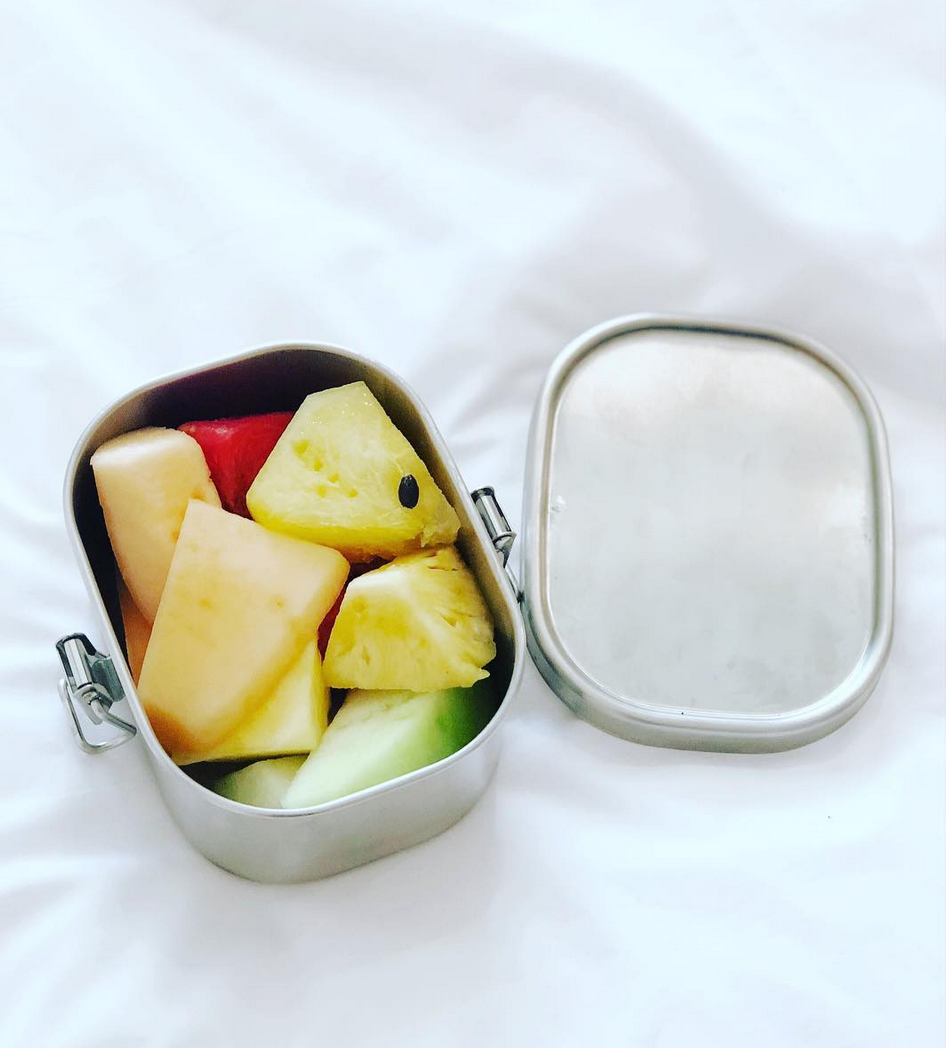
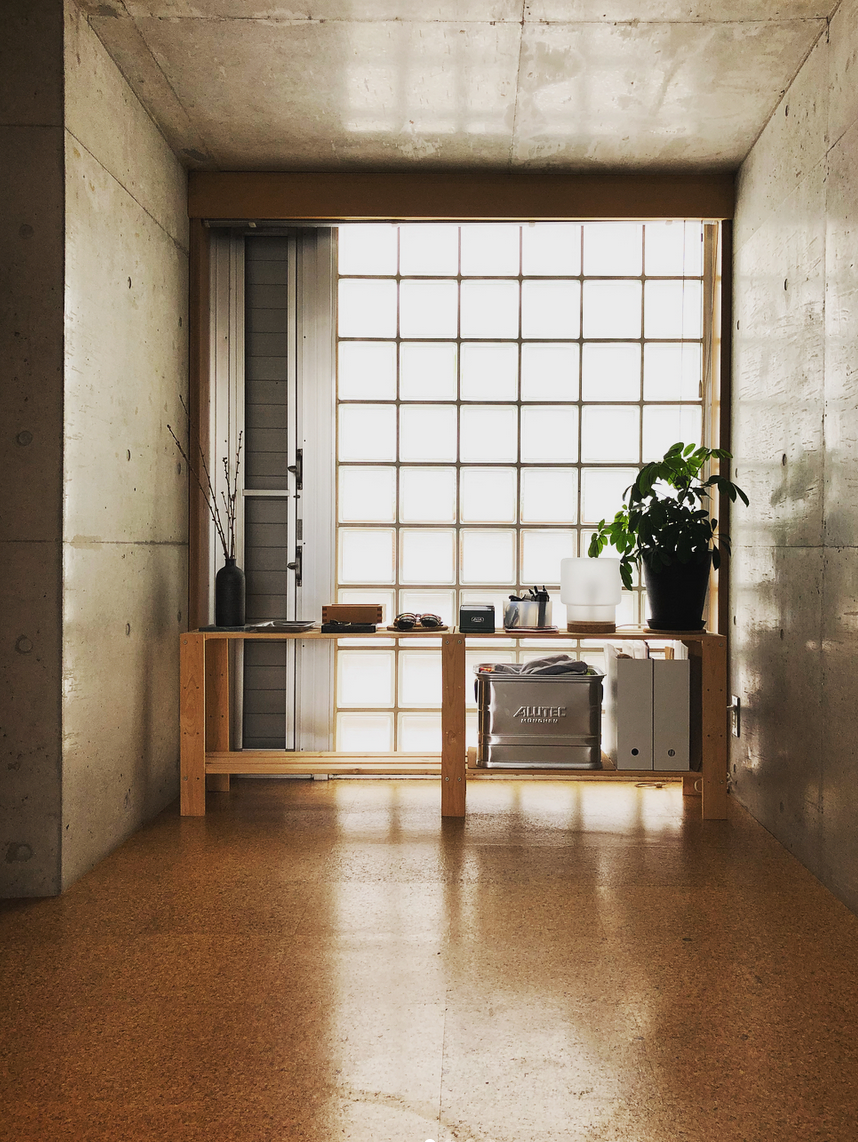
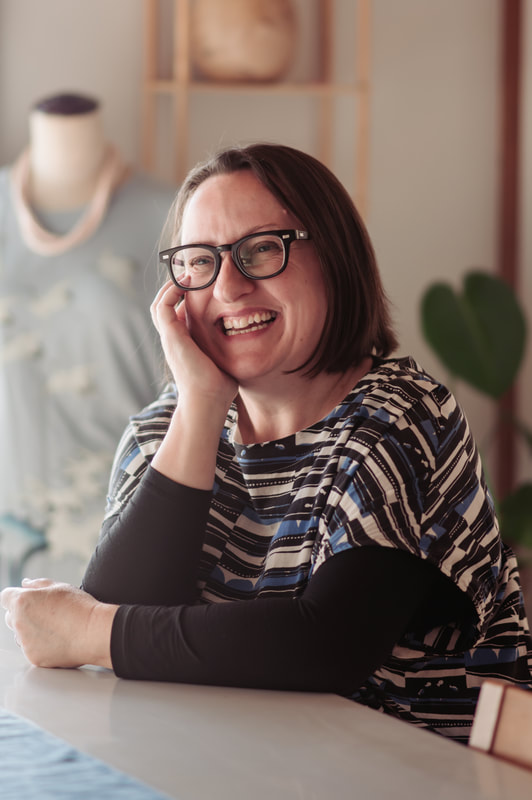
 RSS Feed
RSS Feed